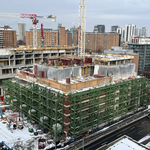daveto
Active Member
Our market has not sky rojeted as much as markets in other cities. .
That's like the fat kid saying he's not fat, because there is someone fatter.
. The Stats Canada numbers are not that accurate.
And you know this how?
The average salary for two professionals working in these jobs combined are around $100k (based on 50k each). That means these folks can afford to buy units up to 400k, and that is what we see happening
So they get a unit 30% smaller than 10 years ago?
I doubt very much we will see any large corrections here unless the rates go up by 3-4% on 5 year mortgage rates. The worst case I see is more flat growth in prices until salaries catch up.
Indeed. Mortgage rates could NEVER reach 7%. That's just crazy talk.
And certainly if mortgage rates stay low, then housing prices could NEVER decrease. That is definately NOT what is happening in the US.
And what exactly is "flat growth"?




